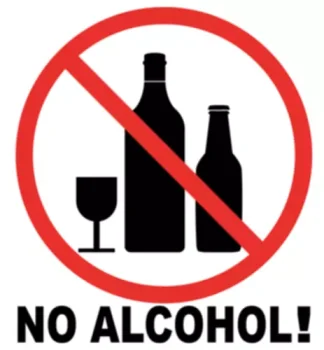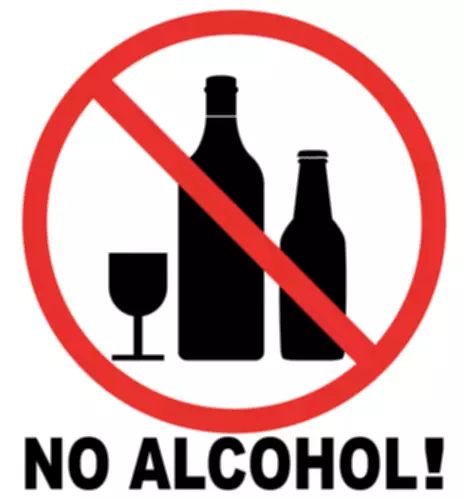
Moving meditation involves practicing mindfulness while engaging in focused movement. You can practice in your own home or in a peaceful place outdoors, such as near a lake, or in a garden, park, or forest. Pay attention to all of the information your senses are receiving from the environment such as the sounds of birds, the crashing of waves, or the smell of flowers. Meditation is a holistic part of addiction recovery that can help address physical substance dependence and also the underlying emotional, psychological and spiritual components of addiction. Meditation can become a tool to help you maintain your sobriety and build a purposeful life.
#1 — Meditation Makes Us Feel Good Naturally Through The Brain’s Happiness Center
- Legal or illegal drugs facilitate the neural release of a neurotransmitter called dopamine, which triggers a feeling of reward.
- Typically, mindfulness meditation is performed in a peaceful setting while sitting comfortably.
- Here’s a summary of how meditation can assist with various addiction symptoms.
- Many therapists offer guided meditations during their individual and group therapy sessions.
- Before diving into the world of meditation, it’s important to have a basic understanding of addiction.
Moreover, mindfulness helps lower stress reactivity in individuals recovering from substance use disorders, further aiding in managing negative emotions. In addition to managing mental health symptoms, these practices promote physical sensations awareness, helping individuals understand and de-emphasize cravings. Through consistent practice, mindfulness can significantly diminish the pull of addictive substances, ultimately paving the way for a more resilient and sustained recovery journey. Studies indicate that regular meditation can help reduce cravings and enhance resilience against stress reactivity, thus contributing to long-term sobriety. Meditation encourages individuals to establish rituals and routines that promote mindfulness in their daily lives.
October Is Domestic Violence Awareness Month: How to Get Involved

Understanding drug and alcohol-induced brain damage, its impacts, and the path to recovery. When you practice mindfulness, you feel less burdened by the constant pressure of pain. This gentle refocusing trains your mind to handle stress, cravings, and fear without reacting too strongly. Furthermore, through consistent practice, meditation cultivates enhanced self-awareness.
- Withdrawing from alcohol use disorder leads to several uncomfortable side effects, with a common one being sleep disturbances…
- Indeed, the brain research community has built a mountain of evidence showing that meditation can help immensely in beating addiction, healthfully and naturally.
- From meditations to stories to cognitive behavioral therapy (CBT), find everything you need for your wellbeing in one app.
- Let’s take a look at what surprising positive benefits some of these unbelievable studies have revealed the practice has on our health, wellbeing, and quality of life.
How can practical mindfulness techniques be applied in daily life for maintaining sobriety?
- Just listen to the expert’s voice and do as they instruct-it couldn’t be simpler.
- Sara Lazar, a researcher at Massachusetts General Hospital, discovered that the more one practices mindfulness meditation, the thicker the brain becomes in the mid-prefrontal cortex and in the mid-insular region of the brain.
- For people who struggle to make other forms of meditation work for them, incorporating water into their practice may be the answer.
- Anyone suffering from addiction knows about the “urge” — the overwhelming, tunnel-vision like, super-powerful impulse to satisfy your craving.
Mindfulness practice can enhance the performance of the prefrontal cortex, the area of the brain that regulates planning and thinking. Meditation also impacts the amygdala, which reduces fear and increases the activation of the anterior cingulate cortex, governing motivation and motor control. These positive brain changes lead many Substance abuse people to try meditation for substance abuse recovery. In addition to this I recommend mindfulness meditation, yoga practice, and regular exercise as they are all excellent to help mood regulation. With accumulating evidence supporting the efficacy of MBIs, the purpose of this paper is to review the cognitive, affective, and neural mechanisms underlying the effects of MBIs on SUDs. Here we also provide clinical recommendations about how these therapeutic mechanisms might be applied to intervening in SUDs and preventing relapse.

Meditation Practices in Addiction Treatment Programs
To stay clean and sober addicts have to examine their past, recognize their mistakes, look into their character, and lead a better life. Changing one’s life is not easy, often painful, even though the changes are for the better. By training the mind to focus in one place and stay in the moment, meditation helps the recovering person relax and move forward.

How does mindfulness contribute to building resilience in addiction recovery?
Discover serene sober vacation addiction meditation kundalini ideas and transform recovery into an adventurous journey of tranquility. Discover the risks of mixing phentermine and alcohol, from cardiovascular strain to weight loss impact. Meditation, an age-old practice, serves as a sanctuary for those seeking inner peace and mental clarity. Originating from various spiritual and religious traditions, it has evolved into a universally embraced method for enhancing personal well-being.